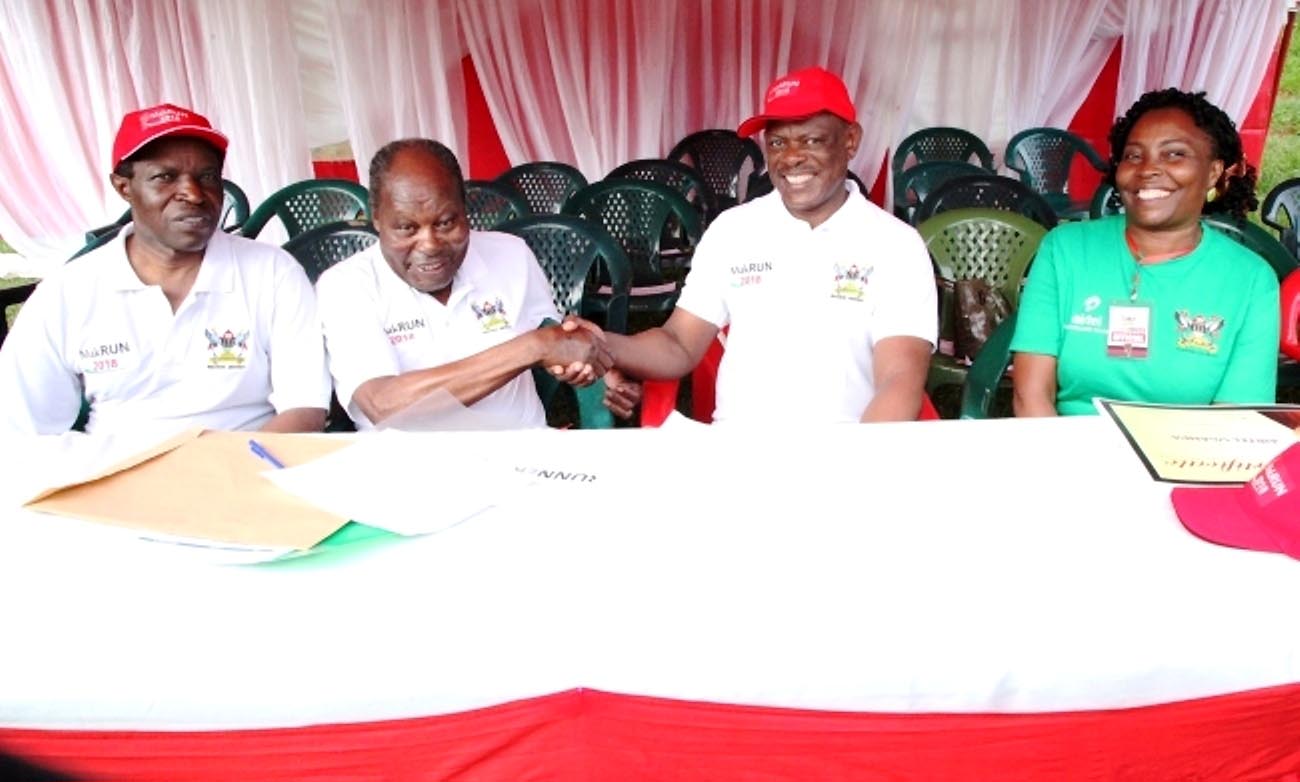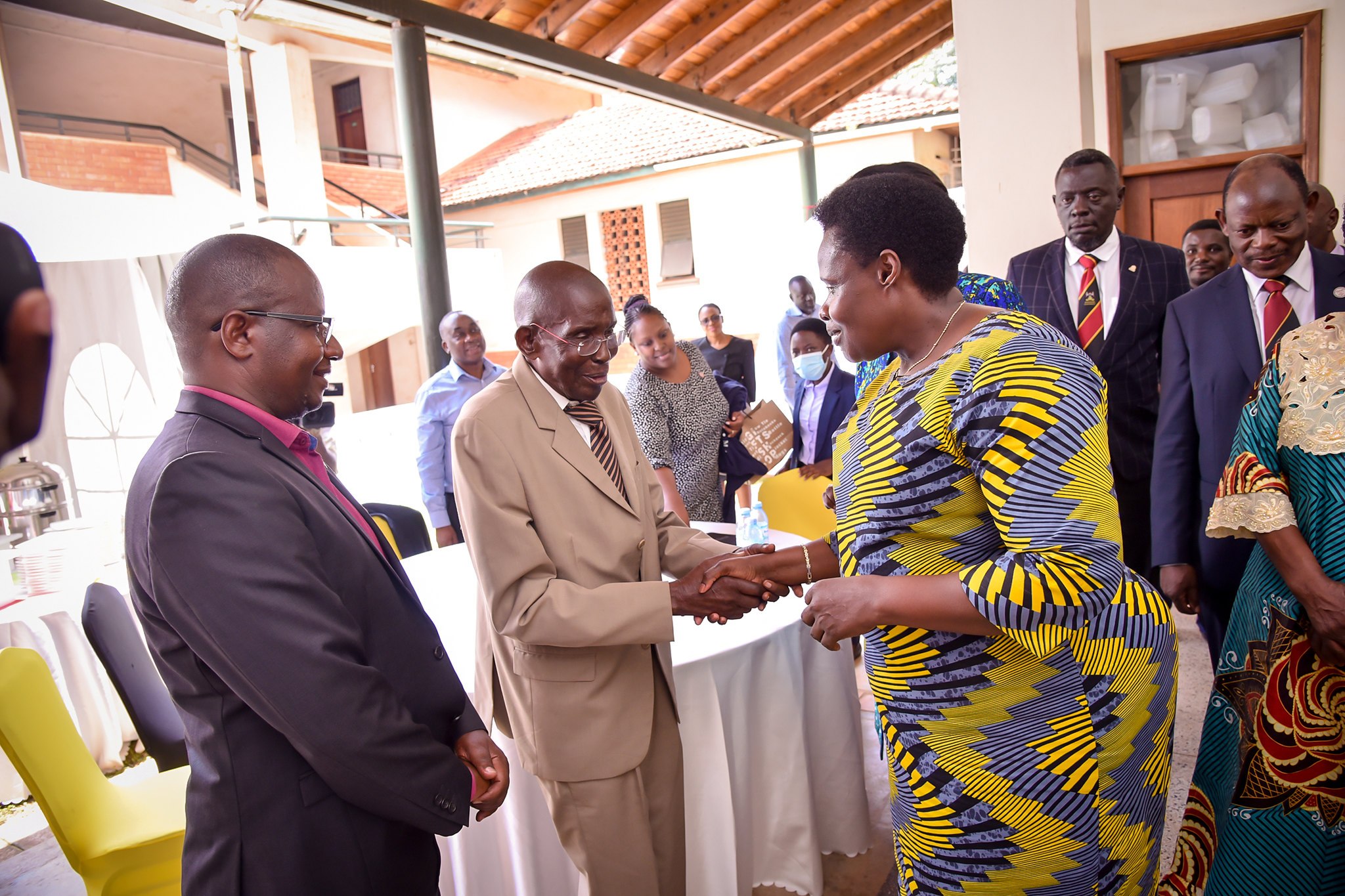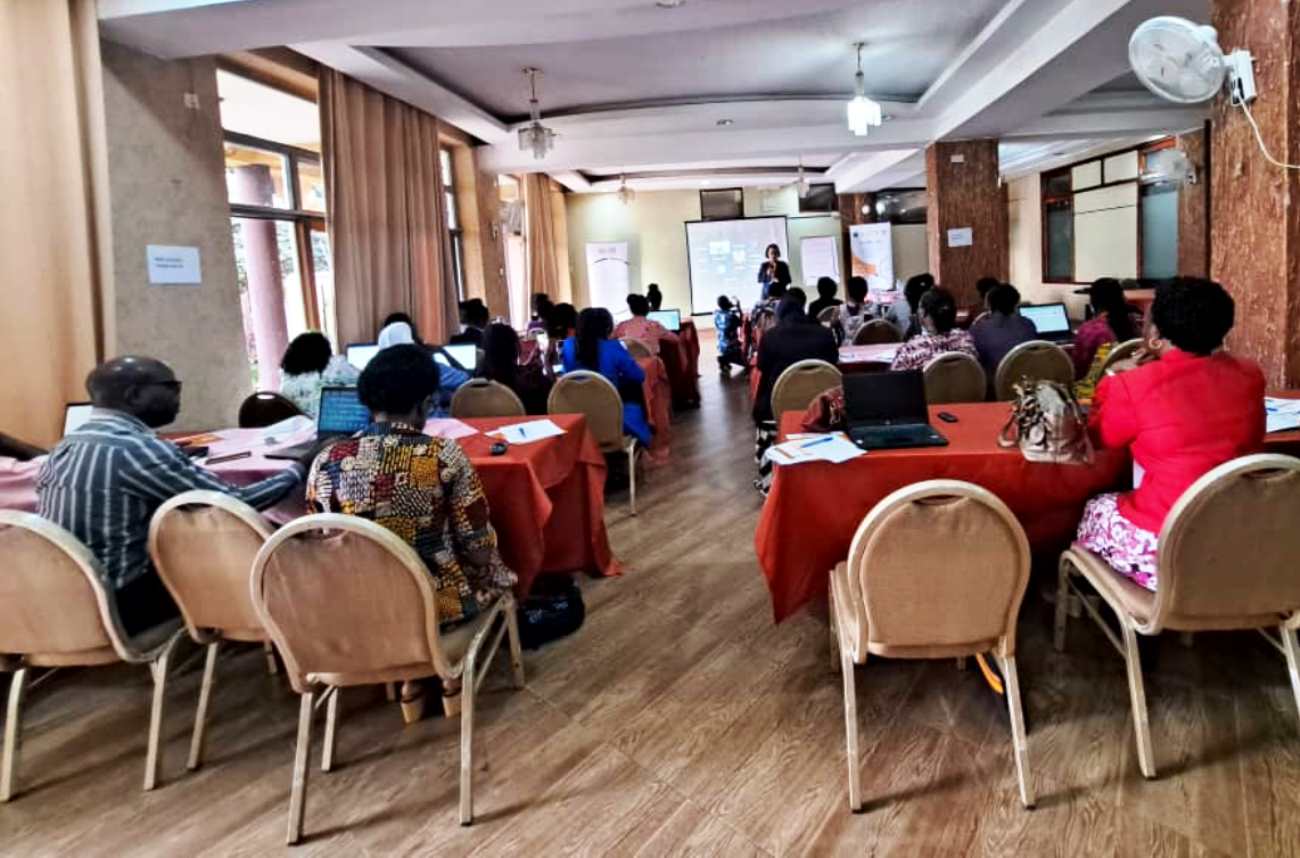The First Lady and Minister of Education and Sports, Hon. Janet Kataaha Museveni has commended Makerere University for uplifting Uganda’s pride nationally and internationally by developing the country’s research and innovation sector. This was during the Mak-Sweden Bilateral Research Annual Planning Meeting (APM) that was held on Monday 23rd April 2018 under a theme: “Harnessing the power of research and innovations for social transformation.”
Makerere University-Sweden Bilateral Research Program (2015-2020) is a renewed research program between the Government of Uganda and Government of Sweden. In the current cooperation agreement, the Swedish government appropriated a fund of 275 million SEC (USD 32 million) to support 17 research teams from the Ugandan public universities to build their human resource and improve the environment for research and training.
Addressing participants in the Main Hall, the Honourable Minister of Education and Sports appreciated Makerere University for taking a lead in finding solutions to societal problems through research and innovative ideas.
“You have generated solutions to problems such as poverty, unemployment, environmental concerns, hunger, power and alternative energy sources with the aim of positively changing the lives of people in the society. So many innovative ideas that have benefited our community have been incubated here at Makerere University,” she said.

“Research is the only avenue for the production of high calibre human resource and innovations in the country, it enables new knowledge and builds capacity. The current developments in society heavily depend on the efforts to utilize the findings from the research done on the several topics in the country. Incidentally development of a country these days is highly measured by how much the country has been able to carry out research and utilizing the findings to develop solutions for the community,” she added.
The First lady acknowledged the tremendous support from the Government of Sweden towards research in public universities in Uganda and the tremendous support it has rendered to the Government of Uganda. “I appreciate the Royal Government of Sweden for the support towards research and innovations that has led to great improvement in the research culture of our public institutions,” The First Lady remarked.
“I want to advise students, management, and staff not to jeopardize such great collaborations through disruptive activities. We should translate the theory taught in these institutions through learning peaceful means of resolving disagreements,” the Minister added.
She appreciated the creativity exhibited by students from the Department of Performing Arts and Film (PAF) led by the Head of Department, Dr. Sylvia A. Nannyonga – Tamusuza, Associate Professor of music.

The Swedish Ambassador to Uganda, H.E Per Lindgarde commended the Ugandan Universities for being able to jointly recruit 310 students out of 337 for the current agreement when he said, “The Swedish Government is proud of the results that have come out of this research collaboration so far. This meeting will hopefully demonstrate a key Swedish Government position: that research cooperation is building a long term commitment beyond aid – a collaboration focused on scientific cooperation on equal footing between partners.”
The First Secretary and Senior Research Advisor in charge of Research Cooperation at the Embassy of Sweden in Uganda, Dr. Gity Behravan emphasized the importance of Sweden’s position to have a holistic approach in its support to research efforts in Uganda.
“The Swedish strategy is based on funding institution building, post-graduate education, and research in one single efforts. No part can function without the others. For the current support, we have aligned our support to a multidisciplinary approach with emphasis on local PhD training in line with the NDPII with the goal to increase the production and use of scientifically based knowledge of international quality that shall contribute to Uganda’s development,” she said.
In order to strengthen Uganda’s ownership of the research agenda, Dr. Behravan said that the country should ensure that its partnerships create and build a sustainable system for higher education and research in Uganda. This requires stronger Government commitment to provide the necessary resources to the research sector.

The main objective of the current five-year Bilateral Research Cooperation agreement is to strengthen the capacity of public universities to conduct and sustain high quality research that will contribute to the development needs of Uganda and beyond through building a critical mass of independent researchers.
According to the Vice Chancellor, Prof. Barnabas Nawangwe, Makerere University has regained her leadership as one of the best universities; not only on the African continent but globally through the enormous research support the Government and the people of Sweden have given to the institution over the last eighteen years.
“Out of the 716 PhD holders at Makerere University, 226 have been trained under the Sida Bilateral research programme with an investment of more than US$73million. More than 200 members of staff have developed skills as supervisors on this programme and almost all of them, have been promoted to higher academic ranks,” he stated.
The Sida Bilateral research program is credited for the major transformation in the College of Health Sciences. Currently, the College has one of the largest number of PhD holders and an extensive research output not only at Makerere University, but throughout the East African Region. The College of Engineering, Design, Art and Technology is one of the flagships for research at Makerere University largely due to the Sida programme.

“Practically every College has benefited from the Sida Bilateral research programme and this has greatly transformed the academic landscape at Makerere University. Under this phase, the programme is also contributing to developing human resource for the other public universities,” said Prof. Nawangwe.
He thanked the Directorate of Research and Graduate Training (DRGT) for its central role in realising the university’s vision of being the leading institution for academic excellence and innovations in Africa. In the same spirit the Vice Chancellor thanked the President of Uganda H.E Yoweri Kaguta Museveni and the Government of the Republic of Uganda for creating an environment conducive for conducting research and innovations at universities.
“I thank the Government of Uganda for the funds that have been provided to us for research and innovation through the Presidential Initiative on Science and Technology at Makerere University and the partner universities. To the Government and people of Uganda and to the Government and people of Sweden, we pledge that we will put to good use all the funds provided to us for research and for training critical human resource for our country and region,” he stated.

The Annual Planning Meeting for Makerere-Sweden Bilateral Research Programme was organized by DRGT, the College of Agricultural and Environmental Sciences (CAES), and Mak Public Relations Office. The meeting was attended by Principal Investigators, Supervisors, and Sida-sponsored students at MSc/MA, PhD and Postdoctoral research training from the five Ugandan partner universities of Makerere University, Kyambogo, Busitema, Gulu and Mbarara University of Science and Technology; together with Swedish representatives from the Universities of Gothenburg; Linköping; Stockholm; Royal Institute of Technology (KTH), Mälardalen University; Chalmers University of Technology; Lund University; Borås University; Karolinska Institute (KI); Swedish University of Agricultural Sciences (SLU) and Uppsala University.
According to the Director DRGT, Prof. Buyinza Mukadasi, the meeting is organised annually to discuss and appraise the research undertakings, share information and learn about development in the field of research, technologies and innovations. The convention offers a platform for multi-disciplinary knowledge exchange between researchers in Uganda and Sweden, and providing an opportunity to measure strength and contribution to solve the societal problems.
“This year’s theme is in line with our research agenda because we are convinced that Uganda today is faced with complex challenges in the area of health, education, technology, urbanisation, environment, rapid changes in technology and the growing complexity of things in general. Such complexity calls for innovative solutions. Researchers are best placed to provide pathways towards innovative solutions by engaging in research collaboration and knowledge exchange,” said Prof. Buyinza.

The Mak-Sweden Annual Planning Meeting (APM) 2018 also featured the Science Day, a platform where staff, students and researchers from the College of Agricultural and Environmental Sciences (CAES) provided evidence-based research presentations and a scientific exhibition of research and innovations. The interactive Science Day sessions chaired by Dr. Herbert Talwana and Dr. Yazidhi Bamutaze featured some of the following presentations:
Prof. Phenihas Tukamuhebwa presented his innovation project on Soybean and its development. According to him, in 1996, Soybean rust (Phakopsora pachyrhizi Syd.); one of the most devastating soybean diseases in the world was detected in Uganda, leading to yield losses of up to 100%. By 2000, farmers had lost interest in growing soybean since it was no longer profitable.
Prof. Tukamuhebwa said that to address this problem, researchers at Makerere University embarked on soybean research and breeding activities in major soybean growing areas in Uganda using a participatory approach that led to the development of six high yielding-rust resistant soybean varieties.
“With over 80% of the people living in Uganda engaged in Agriculture, the Maksoy high yielding rust resistant varieties have transformed the soybean sector and improved livelihoods. Soybean production in Uganda steadily increased from 144,000 hectares in 2004 to 200,000 hectares in 2014 Soybean prices increased from 600 UGX per kg in 2008 to 1000 UGX per kg in 2011 (SNV, 2011),” he said.

Dr. Dorothy Nakimbugwe who is also the Principal Investigator of INSBIZ Project (INSect-based agriBIZiness for sustainable grasshopper and cricket production and processing for food in Kenya and Uganda) introduced the participants to a new and innovative research project of rearing insects for both food and feed. She said that due to health and societal problems such as food insecurity and nutritional issues, researchers have discovered insects as capable instruments in bridging the health- nutritional-food gap by rearing and commercialising them for food and feed.
“Rearing insects can be a solution to the increasing challenge of food shortage in Africa, they are valuable sources of protein, minerals and vitamins that are essential for human development. With enormous demand of meat in the world, insect can be a compliment since are eaten by many people in the world, given their nutritious value,” she said.
In a presentation on combining plants and habitats for improved pest control, Dr. Mattias Jonsson said increasingly, the structure of landscape and habitat is recognized as having a major influence on both insect pests and their natural enemies. Habitat manipulation that aims at conserving natural enemies can potentially contribute to safer and more effective control of invasive pests.

Other presentations of the day included;
- Urban resilience to climate-related shocks and stress in Uganda: a synthesis of frameworks by George Orianga.
- The CNDs integrative to unravel the interplay of natural hazards and vulnerabilities by Frederike Albrecht and Giuliano Di Baldassarre.
- Learning and Student Collaborative innovations. The new frontier for training and job creation by Dr. Fred Kabi.
- Gendered Perception of and attitude towards Climate Change by Faridah Nalwanga
- Integrating ICTs in Agriculture Extension: The Case of M-Omulimisa in Uganda by Prof. Moses Tenywa and Dan Ninsima.
Article by: Proscovia Nabatte, Public Relations Office
Edited by: Ritah Namisango, Public Relations Office
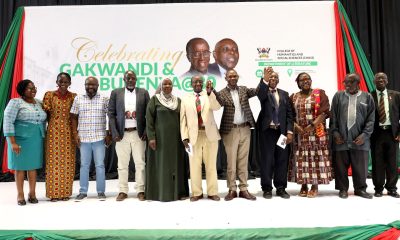
 Humanities & Social Sciences2 weeks ago
Humanities & Social Sciences2 weeks ago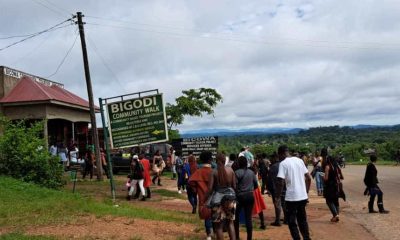
 Agriculture & Environment2 weeks ago
Agriculture & Environment2 weeks ago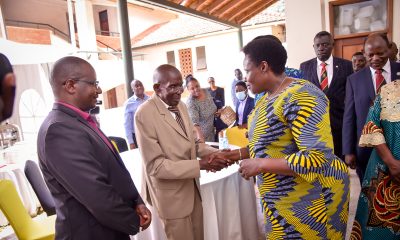
 General3 days ago
General3 days ago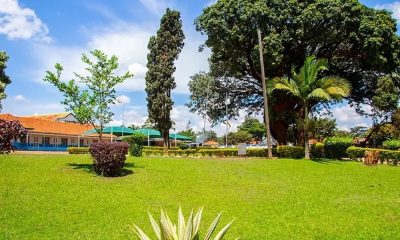
 General2 weeks ago
General2 weeks ago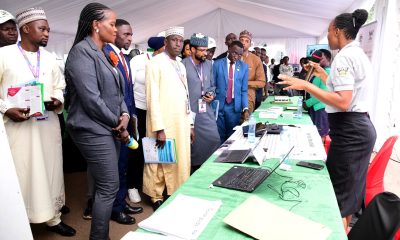
 Computing & IS2 days ago
Computing & IS2 days ago
